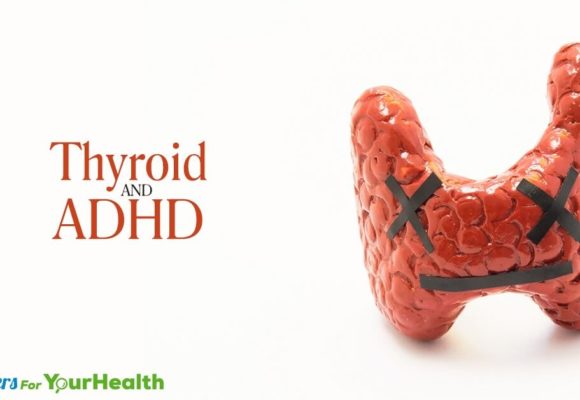1) Grab a FREE copy (Value $14.95) of one of my books Thyroid Symptom Overload
Just pay shipping $7.95 for any US orders. Or, if you want to pay full price plus shipping, order from Amazon :)
2) Take our Thyroid Quiz today and find out what "Thyroid Type" you have
This quiz will help you quickly discover where your symptoms are stemming from.
3) Join Our Thyroid Advocate Membership Site - Natural Thyroid Academy
FREE for a limited time. No credit card required.
4) Work with me and my team privately
Schedule your FREE 15 minute phone consultation and we can find out the best way to help you specifically.
A very rare syndrome, thyroid hormone resistance is when the thyroid hormone levels are high, but TSH level is not as expected to be. You can understand it like this; it is a condition where some of the tissues in the body do not respond well to the thyroid hormones such as triiodothyronine and thyroxine. This happens because the presence of thyroid hormone in the blood streams is high as the pituitary gland is unable to switch off the production of this hormone. Because of this, goiters or the enlargement of thyroid gland can take place. It can also lead to over active or under active thyroid gland.
The question now is this, why does this rare condition manifest and what can be done to control it or get rid of it? Here is all the information you need about thyroid hormone resistance disorder.
Cause of Thyroid Hormone Resistance
What are normal thyroid hormone functions? To be able to travel in the blood and get transported to the required cell membrane, thyroid hormone nuclear receptor, co-repressors, co-activators, and such. If the hormone does not function right, hormone resistance takes place. Hormone works by coordinating with receptors. If they are abnormal, than hormones cannot function properly. And this is what happens when a person is suffering from thyroid hormone resistance.
Studies show that the condition is inherited and can occur in 1 person out of 40,000. The cause is because of mutation in the thyroid hormone receptor. Anyone who is born with it can suffer from either hyper or hypothyroidism. Their thyroid hormone levels are always elevated while the TSH level can be normal or elevated differing from case to case. Since symptoms are never too clear, the condition is mostly misdiagnosed.
Signs and Symptoms
As previously explained, there are no clear cut signs and symptoms for thyroid hormone resistance. Severity of the abnormality leads to different kinds of symptoms for patients. People who have a mild condition may have little to no signs, while others whose abnormality is severe could develop symptoms like an enlarged thyroid gland, hypo or hyperthyroidism.
Children who are born with this problem can have a difficult time getting their hearing developed, are more susceptible to ENT infections, hearing loss, learning disabilities and ADHD which is attention deficit hyperactivity disorder.
Research makes it clear that the condition is hereditary, which means that if anyone of the parent has thyroid hormone deficiency, chances of the child acquiring it are 50%. This means that if the parent has the condition, the child should be checked for it to ensure whether or not thyroid hormone resistance got transferred.
To date only more than a 1000 cases have been reported and of those 85% had thyroid hormone beta receptor mutation.
Diagnosis and Treatment
In order to check whether or not an individual has thyroid resistance hormone, a simple blood test is done for thyroid function. If the levels of thyroid hormone are too high with normal or slightly elevated levels of TSH, then this means that the patient is probably suffering from thyroid hormone resistance. MRI and other blood tests can rule out the possibility of any other medical condition.
At times, some family member are asked to give blood in order to see their thyrotropin-releasing hormone. This too determines whether or not the condition runs in the family. Even if after all these tests, things are not clear, a triiodothyronine suspension test is conducted. This makes clear the situation and allows the medical expert to start treating the hormone resistance issue.
Patients who have absolutely no symptoms, but abnormal blood reports, do not require any kind of treatment as there is no apparent problem. Children on the other hand need to be kept under observation and require extra assessment in order to make sure that they grow normally.
Patients who develop hyper or hypothyroidism are given medications to correct this and keep it under normal conditions. People suffering from palpitations are prescribed medicines that slow down the heart rate. There are some times when patients are given the drug TRIAC that performs the same action as the thyroid hormone, as that helps deal with resistance of the hormone. It acts on certain tissues like the liver and the pituitary gland.
Conclusion
The condition is very rare as it occurs in only 1 out of 40,000-50,000 people. Keep in mind though that since its symptoms are not very clear, it could be a case of misdiagnosis, which is why it is best to get it checked if there is even slight suspicion of the issue. Keep in mind that if the condition progresses, it can lead to a lot of issues, especially among kids. Therefore, getting your thyroid hormones checked by your primary doctor is ideal to avoid the spread of this problem.
References
- http://www.yourhormones.info/endocrine-conditions/resistance-to-thyroid-hormone/
- https://www.ncbi.nlm.nih.gov/pmc/articles/PMC4790576/
- https://www.ncbi.nlm.nih.gov/pubmed/8475937








